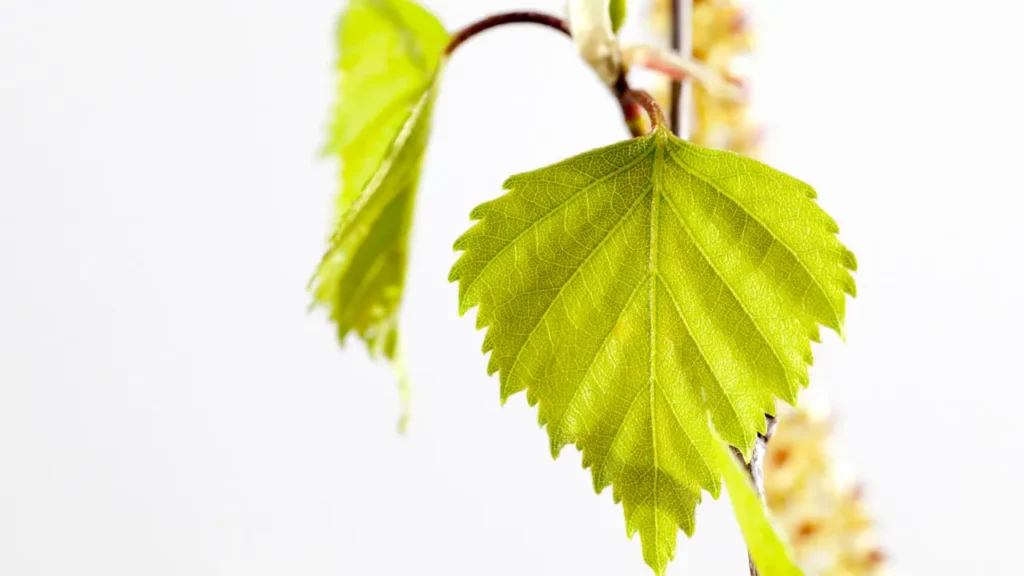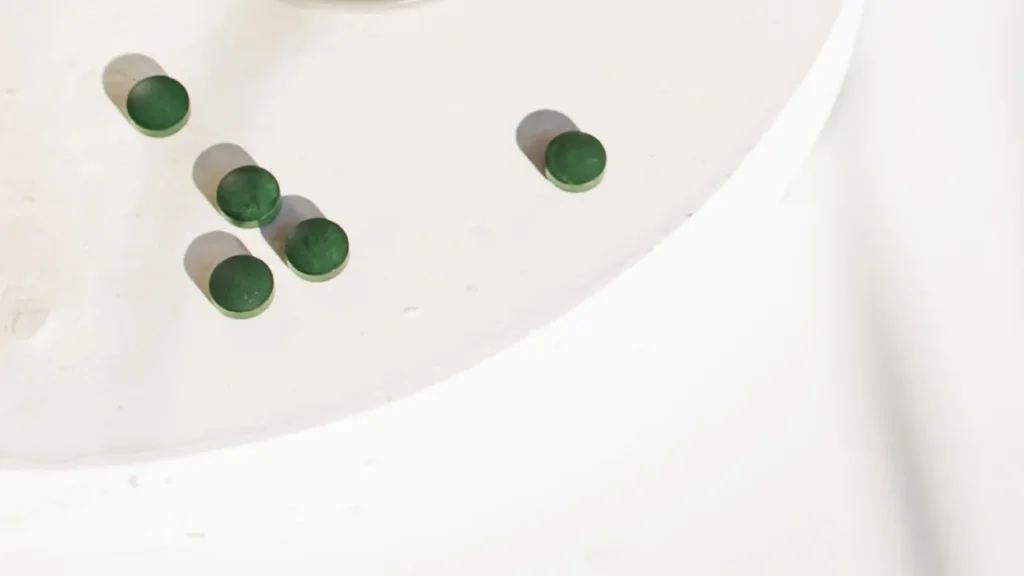Birch trees (Betula spp.) are native to the Northern Hemisphere. Birch trees have long been prized for their therapeutic benefits. Birch trees offer a wealth of bioactive substances in their bark, leaves, and sap that have been used in traditional medicine. The potential health advantages of Birch-derived products, such as supplements and extracts, have recently attracted renewed study. This article seeks to provide a comprehensive examination of the properties of Birch, as well as information on the best dosage, adverse effects, possible drug interactions, and responsible use of this dietary supplement. We will also examine the chemistry of Birch as well as the physiological processes underlying how it affects the body and brain.
You May Also Like:
What Are the Best Mushrooms for Brain Health? Here Are the Facts.
Black Alder: Benefits, Dosage, Side Effects, Drug Interactions, and Other Important Information
Birch: Benefits, Dosage, Side Effects, Drug Interactions, and Other Important Information is an original (NootropicsPlanet) article.
Nature of Birch
Birch trees, which are deciduous trees of the Betula genus, are mostly found in the Northern Hemisphere. Birches come in more than 60 different species, such as the paper Birch (Betula papyrifera), white Birch (Betula pubescens), and silver Birch (Betula pendula). Birch trees are renowned for their varied therapeutic benefits in addition to their distinctive white bark. These trees’ bark, leaves, and sap have been used for millennia in numerous traditional medical procedures; today, they can be found as dietary supplements and extracts.
Health Benefits of Birch
Antioxidant and Anti-inflammatory Effects
Oxidative stress is a significant preventable cause of chronic diseases like cancer, cardiovascular disease, and neurodegenerative disorders. Birch extracts contain an abundance of antioxidants, which scavenge free radicals and lessen their effects. The inclusion of betulin and betulinic acid is principally responsible for the anti-inflammatory effects of Birch extracts. These substances prevent the synthesis of pro-inflammatory cytokines and prevent nuclear factor-kappa B (NF-B), a crucial regulator of inflammation, from activating.
Anti-Cancer Features
The potential anticancer activities of Birch-derived chemicals, particularly betulinic acid, have been thoroughly investigated. Betulinic acid targets mitochondria and activate caspase pathways, causing apoptosis (programmed cell death) in a number of cancer cell lines. Betulinic acid is a viable possibility for cancer treatment because it specifically targets cancer cells without hurting healthy cells.
Antiviral Function
Herpes simplex virus (HSV), influenza A virus, and human immunodeficiency virus (HIV) are just a few of the viruses that Birch extracts have shown antiviral action against. The major component of Birch has antiviral characteristics is betulinic acid, which obstructs viral reproduction and hinders viral entrance into host cells.
Detoxifying and Diuretic Properties
The leaves of Birch trees have long been used as a diuretic and detoxifier. The inclusion of flavonoids and potassium salt, which boost urine production and aid in the removal of toxins from the body, is thought to be responsible for the diuretic effect. The liver and kidneys may benefit from this detoxifying impact, which in turn, improves general health.

Chemistry of Birch
Birch trees have bioactive substances, including phenolic compounds, terpenoids and tannins, which have therapeutic qualities. The phenolic compounds, in particular betulin and betulinic acid, are the most prevalent and thoroughly researched substances. A pentacyclic triterpenoid derivative of betulin, betulinic acid, is a triterpenoid called betulin. These substances have potent anti-inflammatory, antiviral, antioxidant, and anticancer properties.
Flavonoids are also found in Birch, a complex collection of naturally occurring polyphenolic chemicals with antioxidant effects. Birch trees contain a number of flavonoids, including quercetin, kaempferol, and catechin. Birch leaves also contain essential oils, which add to the medicinal benefits of the plant by include components like limonene, -pinene, and -caryophyllene.
Physiological Mechanisms of Action
Birch-derived substances influence the body and brain positively via a variety of physiological pathways. Here are some of the main mechanisms of action linked to the Birch’s health advantages:
Mechanisms of Antioxidants and Anti-Inflammation
Reactive oxygen species (ROS), which cause cellular damage and oxidative stress, are countered by the antioxidant qualities of Birch chemicals. Strong antioxidants that can stabilize free radicals and lessen oxidative stress include betulin and betulinic acid. These substances’ anti-inflammatory effects are primarily related to their suppression of nuclear factor-kappa B (NF-B), a crucial regulator of inflammation, activation as well as the production of pro-inflammatory cytokines. As a result, these antioxidant and anti-inflammatory actions can aid in the relief of numerous chronic conditions linked to oxidative stress and inflammation.
Mechanisms Against Cancer
The capacity of Birch-derived chemicals to cause cancer cells to undergo apoptosis. By attacking the mitochondria, the presence and activity of betulinic acid results in a reduction in the potential of the mitochondrial membrane and the release of cytochrome c, which then initiates the caspase cascade. This series of actions causes DNA fragmentation, which ultimately results in the death of cancer cells.
Viral Defence Mechanisms
Birch chemicals can inhibit viral replication and stop the entry of viruses into host cells. Betulinic acid reduces the activity of viral enzymes necessary for viral reproduction, including HIV-1 reverse transcriptase and protease. Furthermore, betulinic acid can bind to viral glycoproteins and stop them from interacting with the receptors on host cells, preventing viral entry and infection.
Detoxifying and diuretic mechanisms
Birch leaves’ diuretic effects are related to the presence of flavonoids and potassium salts, which boost urine production and aid in the body’s detoxification process. This diuretic effect encourages waste product excretion and supports the liver and kidneys’ healthy operation.

Optimal Dosage
Depending on the specific supplement being used, the recommended dosage of Birch supplements may change with age and health status. Typically, 80–120 mg of Birch leaf extract and 240–480 mg of Birch bark extract should be taken daily. Before beginning a supplement regimen, it is important you heed the manufacturer’s recommendations and seek medical advice. Additionally, it is advised to take Birch supplements for a brief period, such as a few weeks, followed by a break, due to the paucity of extensive research on their long-term effects.
Side Effects
Supplements containing Birch are generally regarded as safe when used in the recommended dosages. However, some people may experience minor side effects like nausea, allergic reactions, and gastrointestinal discomfort. When taking Birch supplements, people who are allergic to Birch pollen should use caution as they could experience an allergic reaction more frequently. Before taking Birch supplements, anyone who is pregnant, breastfeeding, or has renal or liver illness should speak with a doctor.

Potential Substance Interactions
To ensure safe use, it is critical you be informed of how Birch supplements may interact with specific drugs. Potential drug interactions with Birch supplements include the following:
- Diuretics: Because Birch has diuretic qualities, using it with a diuretic medicine may cause excessive fluid loss, which can cause electrolyte imbalances and dehydration. Before consuming Birch supplements, patients taking diuretics should speak with doctors.
- Blood-thinning medications: Birch includes salicylates, which have anticoagulant and antiplatelet effects. The risk of excessive or uncontrollable bleeding may rise when used with anticoagulant or antiplatelet drugs like aspirin or warfarin. If you are considering taking Birch supplements but are using blood-thinning medication, talk to your doctor first.
- Diabetic Medications: Birch extracts may reduce blood sugar levels and may result in hypoglycemia when combined with diabetic medications. If you are on diabetic drugs and are thinking about taking Birch supplements, monitor your blood sugar levels carefully and speak with a healthcare provider.
Responsible Use of Birch Supplements
Follow these recommendations to ensure the best responsible use of Birch supplements:
- Speak with a doctor before beginning any supplement program, especially if you are expecting, nursing, or already have a medical issue.
- Adhere to the dosage recommendations made by the manufacturer or a medical expert.
- Recognize possible side effects and drug interactions, and inform your healthcare provider of any negative outcomes.
- To assure the security and effectiveness of your purchase, pick supplements of the highest caliber from reliable producers.
Birch:
Conclusion
Almost all parts of Birch trees contain elements that are beneficial to human health. This includes the leaves, bark, and sap of the trees. Knowledge of these benefits has existed for quite some time, and in modern times there has been a revitalization of energy spent researching these benefits. Some of the effects Birch based supplements on health are tremendous, including fighting cancer, fighting viruses, and cleansing the body of toxins through urination. Please take into account any preexisting conditions before taking this supplement as there is a possibility for harmful interactions. After confirming Birch is safe for your consumption, enjoy what the benefits bring to your life!

References:
- “Betulinic acid – a natural product with anticancer activity.” Retrieved from: https://onlinelibrary.wiley.com/doi/10.1002/mnfr.200700491
- “Medicinal Properties of Birch Trees: Health Benefits and Uses.” Retrieved from: https://treefluent.com/medicinal-properties-of-birch-trees/
Important Note: The information contained in this article is for general informational purposes only, and should not be construed as health or medical advice, nor is it intended to diagnose, prevent, treat, or cure any disease or health condition. Before embarking on any diet, fitness regimen, or program of nutritional supplementation, it is advisable to consult your healthcare professional in order to determine its safety and probable efficacy in terms of your individual state of health.
Regarding Nutritional Supplements Or Other Non-Prescription Health Products: If any nutritional supplements or other non-prescription health products are mentioned in the foregoing article, any claims or statements made about them have not been evaluated by the U.S. Food and Drug Administration, and such nutritional supplements or other health products are not intended to diagnose, treat, cure, or prevent any disease.


